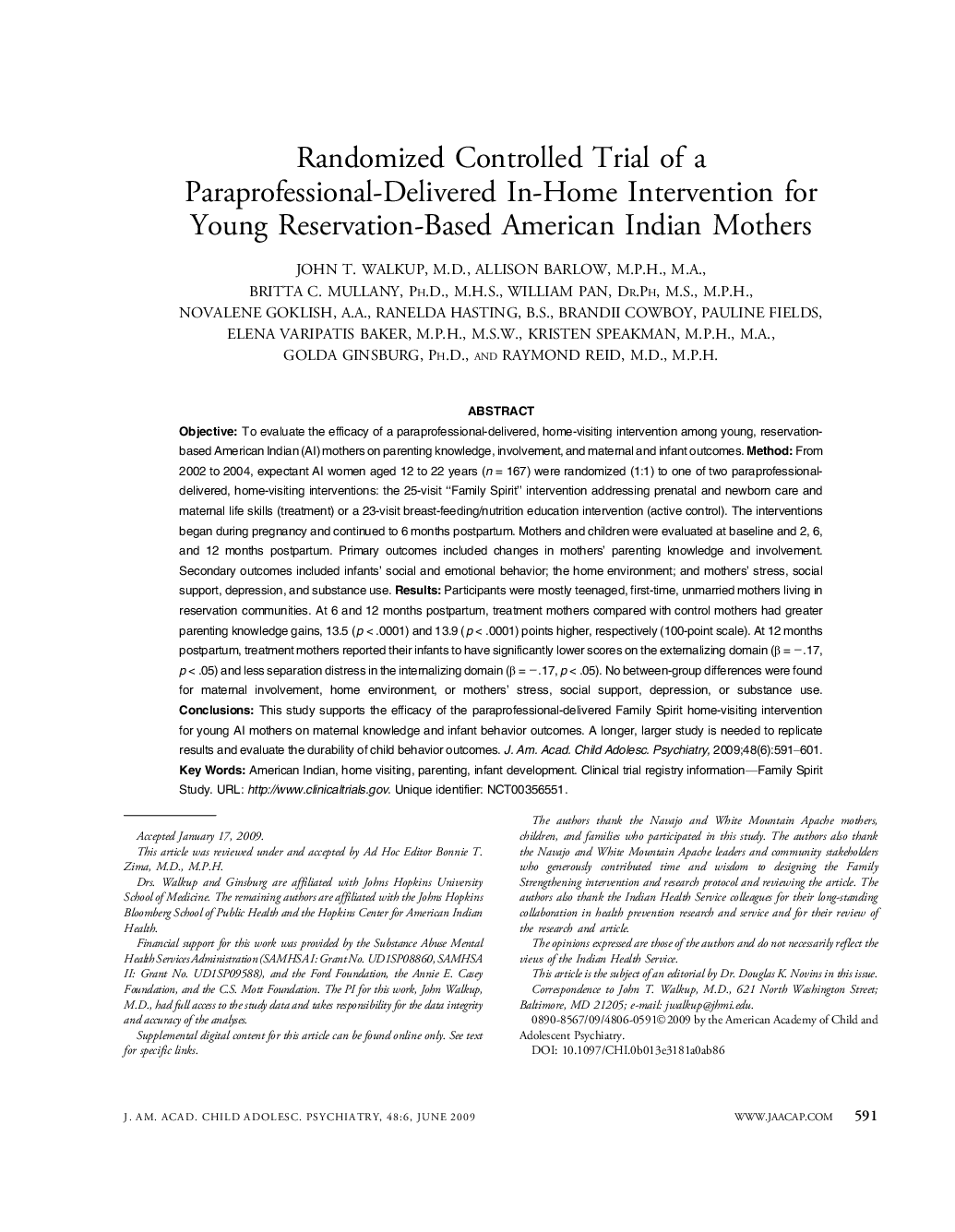| کد مقاله | کد نشریه | سال انتشار | مقاله انگلیسی | نسخه تمام متن |
|---|---|---|---|---|
| 325807 | 1433011 | 2009 | 11 صفحه PDF | دانلود رایگان |

ObjectiveTo evaluate the efficacy of a paraprofessional-delivered, home-visiting intervention among young, reservation-based American Indian (AI) mothers on parenting knowledge, involvement, and maternal and infant outcomes.MethodFrom 2002 to 2004, expectant AI women aged 12 to 22 years (n = 167) were randomized (1:1) to one of two paraprofessional-delivered, home-visiting interventions: the 25-visit “Family Spirit” intervention addressing prenatal and newborn care and maternal life skills (treatment) or a 23-visit breast-feeding/nutrition education intervention (active control). The interventions began during pregnancy and continued to 6 months postpartum. Mothers and children were evaluated at baseline and 2, 6, and 12 months postpartum. Primary outcomes included changes in mothers' parenting knowledge and involvement. Secondary outcomes included infants' social and emotional behavior; the home environment; and mothers' stress, social support, depression, and substance use.ResultsParticipants were mostly teenaged, first-time, unmarried mothers living in reservation communities. At 6 and 12 months postpartum, treatment mothers compared with control mothers had greater parenting knowledge gains, 13.5 (p < .0001) and 13.9 (p < .0001) points higher, respectively (100-point scale). At 12 months postpartum, treatment mothers reported their infants to have significantly lower scores on the externalizing domain (β = −.17, p < .05) and less separation distress in the internalizing domain (β = −.17, p < .05). No between-group differences were found for maternal involvement, home environment, or mothers' stress, social support, depression, or substance use.ConclusionsThis study supports the efficacy of the paraprofessional-delivered Family Spirit home-visiting intervention for young AI mothers on maternal knowledge and infant behavior outcomes. A longer, larger study is needed to replicate results and evaluate the durability of child behavior outcomes. J. Am. Acad. Child Adolesc. Psychiatry, 2009;48(6):591-601.
Journal: Journal of the American Academy of Child & Adolescent Psychiatry - Volume 48, Issue 6, June 2009, Pages 591–601